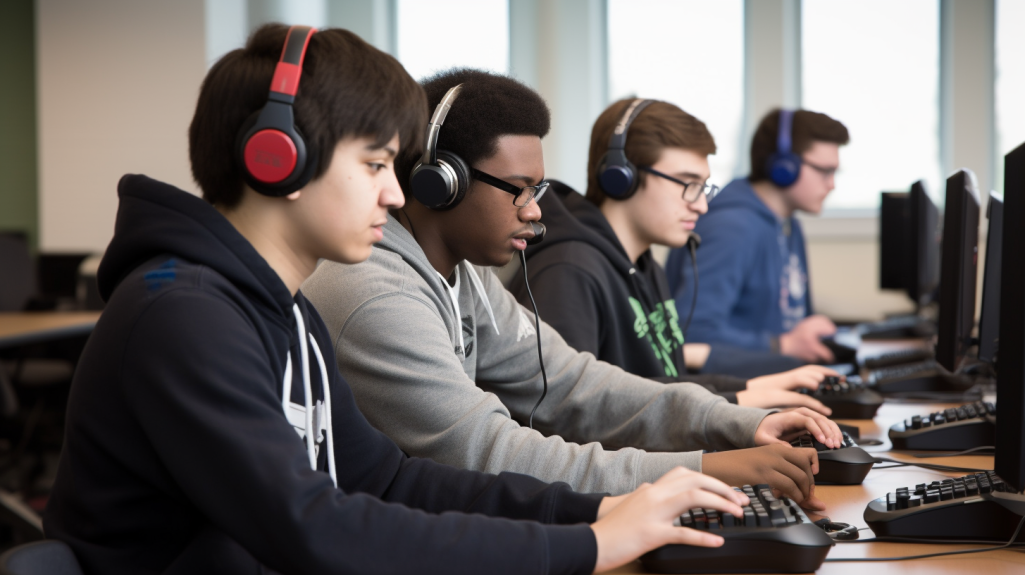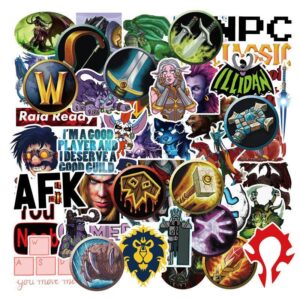Let’s kick things off with a snapshot of the burgeoning world of online gaming. Over recent years, online gaming has soared to new heights in popularity, and it’s particularly striking how students have embraced this digital phenomenon. The allure of virtual adventures, immersive storytelling, and challenging quests has drawn in young minds from across the globe.
In the modern era of education, students seeking additional academic assistance often resort to online resources, including the option to buy custom essay, to enhance their learning experience. As we navigate this technologically driven era, the ability to connect, communicate, and collaborate with others has become a vital asset. These skills extend beyond the digital realm, impacting our success in education, careers, and personal relationships.
So, why are we here? This article aims to be your guide on an exciting journey, delving into the realm of online gaming and its profound influence on the interpersonal skills of students. We’ll uncover how the captivating landscapes of virtual worlds are not just entertainment but fertile grounds for the development of crucial life skills.
Online Gaming Communities
Now, let’s zoom in on the vibrant ecosystems known as online gaming communities. These digital realms are much more than just platforms for gameplay; they are intricate networks of players who share a common passion. Picture them as dynamic, interconnected hubs where individuals gather, not unlike the bustling streets of a city.
The world of online gaming is incredibly diverse, offering various types of games, each with its own unique community dynamics. These games range from massive multiplayer online role-playing games (MMORPGs) to first-person shooters and strategy simulations. In these virtual arenas, players unite, forge alliances, and compete in quests or battles. The social fabric of these communities is like an orchestra, with players harmonizing their efforts or engaging in friendly competition.
Within these digital landscapes, social interaction is the lifeblood of gaming communities. Players communicate through text or voice chats, strategize to overcome challenges, and celebrate victories together. It’s a dynamic and ever-evolving environment where cooperation, leadership, and teamwork are not just valuable but often necessary for success.
To put things in perspective, statistics reveal that online gaming has become a ubiquitous pastime among students. The numbers paint a vivid picture of its prevalence, with a significant percentage of students engaging in online gaming regularly. These statistics underline the importance of understanding how this activity impacts their lives and development.
Interpersonal Skills and Their Importance
Now, let’s shift our focus to interpersonal skills – those subtle, yet indispensable abilities that enable us to navigate the complex web of human interactions. Interpersonal skills encompass communication, empathy, active listening, and the capacity to build rapport. They are the threads that weave together successful relationships, both personal and professional.
In the grand tapestry of life, these skills are not merely desirable but essential for personal growth and success. The relevance of interpersonal skills in education and career development cannot be overstated. In classrooms, these skills facilitate effective learning, peer collaboration, and classroom harmony. In the professional world, they can open doors, foster teamwork, and promote career advancement.
As we explore the impact of online gaming, it’s crucial to recognize the role technology plays in shaping interpersonal skills. With the digital age as our backdrop, technology has become a powerful tool for communication. Online gaming, in particular, acts as a training ground where individuals can hone their social skills, adapt to diverse personalities, and learn the nuances of effective digital communication.
The Impact of Online Gaming on Interpersonal Skills
Let’s dive into the influence of online gaming on interpersonal skills, starting with communication and teamwork in multiplayer games. Take, for instance, the world of esports, where professional players showcase exceptional communication and collaboration skills. In games like “Counter-Strike,” teams synchronize their movements and strategies through rapid, concise communication. They wield their virtual weapons, not in isolation, but as a cohesive unit. This is akin to a finely tuned ensemble, where each player has a unique role, and effective communication is the conductor that keeps them in sync.
Moreover, online gaming also nurtures leadership and followership skills. In games like “League of Legends,” players often take on distinct roles within a team. Some step up as leaders, guiding the group’s strategy, while others follow these cues, demonstrating their ability to collaborate and follow instructions. It’s a dynamic shift that mirrors real-world scenarios, where leadership and teamwork are intertwined.
Moving on, online gaming provides a fertile ground for honing conflict resolution and problem-solving abilities. Consider the in-game challenges that demand critical thinking and conflict resolution. In “World of Warcraft,” for instance, raid teams encounter intricate boss fights that require players to adapt on the fly, analyze enemy patterns, and devise new strategies. This stimulates cognitive skills, promoting analytical thinking and the ability to resolve complex issues under pressure. These skills are not confined to the digital domain; they readily translate to real-life problem-solving situations. The problem-solving skills cultivated in gaming often find real-life applications. Gamers accustomed to tackling complex quests develop a knack for breaking down intricate problems into manageable steps. This capability is a valuable asset in academics and professional life, where the ability to solve complex challenges is highly prized.
Online gaming also has a fascinating impact on empathy and perspective-taking. When players immerse themselves in a character’s shoes, whether it’s a hero, villain, or even a non-player character, they experience a form of empathy. In “The Witcher 3,” players are thrust into morally ambiguous situations, requiring them to make choices that shape the narrative. This immersive storytelling encourages players to consider different perspectives and the consequences of their decisions, fostering empathy.
The link between empathy in gaming and real-world interactions is palpable. Those who empathize with virtual characters tend to be more empathetic in their daily lives. They’re better equipped to understand and relate to others’ emotions, a skill that enhances their relationships, be it with friends, family, or colleagues.
Potential Concerns and Drawbacks
As we explore the impact of online gaming, it’s vital to address potential concerns, starting with online toxicity and its impact on students. Online toxicity, marked by rude or offensive behavior, can create a hostile gaming environment. Students exposed to such toxicity may experience negative emotions and, in some cases, develop a skewed perspective on social interactions.
Another critical aspect is the delicate balance between gaming and academic responsibilities.
Balancing gaming with academic commitments can be challenging. Students may struggle to allocate time effectively, potentially leading to a negative impact on their grades and academic progress.
Lastly, there’s the concern of gaming addiction and its effects on social life. Excessive gaming can lead to addiction, which may result in social isolation. Students addicted to gaming may withdraw from real-world interactions, impacting their relationships and overall well-being.
Strategies for Harnessing the Positive Impact
To mitigate these concerns and harness the positive impact of online gaming, educational institutions can play a pivotal role. Integrating gaming into the curriculum, particularly through educational games and gamified learning modules, can leverage the educational potential of gaming. Establishing clear guidelines for responsible gaming in educational settings can help students strike a healthy balance between gaming and academic responsibilities.
Parental involvement and support are essential in guiding students toward responsible gaming habits. Encouraging open discussions about gaming habits and setting reasonable limits can promote responsible gaming behavior among students. Parents can also monitor their children’s gaming time and ensure it does not interfere with other essential aspects of their lives.
Fostering positive gaming communities is a collective effort. Encouraging positive behavior and sportsmanship within gaming communities can create a more enjoyable and respectful online environment. Implementing reporting mechanisms for toxic behavior and promptly addressing such issues can help maintain a healthy gaming ecosystem.
In conclusion, online gaming is not just a digital pastime; it’s a dynamic arena where interpersonal skills are honed, and life lessons are learned. By recognizing its potential and addressing its challenges, we can ensure that online gaming remains a valuable tool for personal development and entertainment in the digital age.













